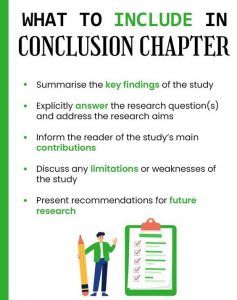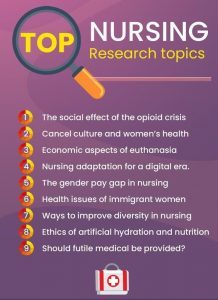The research paper conclusion is the final flourish, the lasting impression you leave on your reader. It’s not simply a recap of what you’ve already said, but a chance to synthesize your findings, offer insightful interpretations, and leave your audience with a sense of accomplishment, understanding, and even inspiration. A well-written research paper conclusion can elevate your entire paper, solidifying its impact and ensuring its message resonates long after the last page is turned.
The following guide will take you through the process of writing a compelling research paper conclusion, with examples to illustrate every step.
The Power of a Purposeful Conclusion
While a brief overview of your key findings is often included, the research paper conclusion transcends simple summarization. Its true power lies in its ability to connect the dots, drawing meaningful insights from the data presented and weaving them into a coherent narrative. Think of it as a bridge connecting your research journey to its broader implications.

The Key Elements of a Stellar Research Paper Conclusion
- Reiterate the Research Question: Briefly restate the primary research question that guided your study. This serves as a reminder of the central focus and helps readers recall the journey they’ve taken with you.
- Summarize Key Findings: Provide a concise overview of your main results, highlighting significant discoveries and trends. Avoid simply listing facts; instead, weave them together into a coherent narrative that underscores the core message of your research.
- Interpret and Analyze: The research paper conclusion is where you bring your findings to life. Don’t just state the results; interpret their meaning and significance. How do your findings contribute to the existing body of knowledge? What new perspectives do they offer?
- Address Limitations: Every research project has limitations. Acknowledge the constraints of your study and discuss their potential impact on the results. This demonstrates intellectual honesty and fosters trust with your audience.
- Suggest Future Directions: The research paper conclusion is a fertile ground for sparking further inquiry. Identify gaps in knowledge that your research has uncovered, suggest promising avenues for future exploration, and propose practical applications for your findings.
The Art of Persuasion: Leaving a Lasting Impact
A well-crafted research paper conclusion doesn’t just inform; it persuades. It should leave your reader with a clear understanding of the significance of your work and its potential impact on the field. This can be achieved through:
- Making Connections: Connect your research to broader themes and real-world implications. How do your findings relate to social, political, economic, or environmental issues?
- Generating Discussion: Pose thought-provoking questions that invite further reflection and discussion. Encourage your readers to engage with the topic on a deeper level.
- Highlighting Key Contributions: Emphasize the unique contributions of your research. What new insights have you brought to the field? How have you advanced the understanding of the topic?
Polishing Your Research Paper Conclusion
The research paper conclusion is your opportunity to leave a lasting impact. Take the time to craft it carefully, ensuring it is clear, insightful, and persuasive. By following these guidelines, you can create a conclusion that elevates your research and ensures its message is both impactful and memorable.
Examples and Strategies for Crafting Effective Research Paper Conclusions
- The ‘So What?’ Approach:
Imagine a reader asking, “So what? Why should I care about your research?” The research paper conclusion should directly answer this question. For example:
- Research Question: How does social media influence political participation?
- Conclusion: “This research demonstrates a clear correlation between social media use and increased political participation among young adults. This finding suggests that social media platforms have become powerful tools for political mobilization and engagement, impacting the future of democratic processes.”
- The ‘Future Directions’ Strategy:
Highlight the next steps in your research journey. This demonstrates your commitment to the field and encourages further investigation.
- Research Question: What are the long-term effects of early childhood literacy programs on academic achievement?
- Conclusion: “While this study provides evidence for the positive impact of early childhood literacy programs, further research is needed to investigate the specific mechanisms by which these programs influence long-term academic success. Future studies could explore the role of parental involvement, teacher training, and program implementation in maximizing program effectiveness.”
- The ‘Impactful Application’ Approach:
Connect your research to real-world applications and demonstrate its relevance to broader societal concerns.
- Research Question: How can renewable energy sources be integrated into existing energy grids?
- Conclusion: “This research provides practical solutions for integrating renewable energy sources into existing energy grids, promoting a transition towards a sustainable and environmentally friendly energy system. These solutions can contribute to reducing greenhouse gas emissions and mitigating climate change.”
- The ‘Thought-Provoking Question’ Strategy:
Leave your reader with a lingering question that encourages further reflection and discussion.
- Research Question: What are the ethical implications of artificial intelligence in healthcare?
- Conclusion: “While AI holds tremendous potential for revolutionizing healthcare, it also raises profound ethical dilemmas regarding patient privacy, data security, and the role of human judgment. As AI becomes increasingly integrated into healthcare systems, it is crucial to engage in ongoing dialogue about these ethical considerations to ensure responsible and equitable use of this powerful technology.”
- The ‘Synthesis and Synthesis’ Approach:
Weave together your key findings and interpretations, creating a cohesive narrative that highlights the broader significance of your work.
- Research Question: How does cultural diversity influence organizational innovation?
- Conclusion: “This research demonstrates a clear link between cultural diversity and organizational innovation. By fostering a diverse and inclusive workplace, organizations can tap into a wider range of perspectives, experiences, and ideas, leading to enhanced creativity, problem-solving, and overall innovation. These findings underscore the importance of valuing diversity as a critical driver of organizational success.”

The research paper conclusion is the final opportunity to leave a lasting impression on your readers. By effectively summarizing, interpreting, and connecting your findings, you can create a conclusion that resonates with your audience, solidifying your research’s impact and fostering a lasting understanding of your work. Remember, the research paper conclusion is more than just a summary; it’s the capstone that elevates your entire research project.
Common Pitfalls to Avoid When Writing the Conclusion
While the research paper conclusion is a critical component, it can also be a source of common errors. Here are some pitfalls to avoid:
- Introducing New Information: The research paper conclusion is not the place to introduce new concepts, data, or arguments. Stick to summarizing, interpreting, and connecting the information already presented.
- Overly Broad Statements: Avoid making sweeping generalizations or drawing conclusions that go beyond the scope of your research. Stick to the evidence presented and avoid unsubstantiated claims.
- Repeating the Abstract: The research paper conclusion should be distinct from your abstract. While both summarize the key points, the conclusion offers deeper interpretation and analysis.
- Lack of Clarity: A well-written research paper conclusion is concise, clear, and easy to understand. Avoid jargon or overly complex language that might obscure your message.
Topics for Nursing Research Papers
Here are 5 topics for nursing research papers, encompassing a variety of areas:
- The Impact of Mindfulness-Based Interventions on Stress and Burnout in Nurses: This topic explores the effectiveness of mindfulness techniques in mitigating stress and burnout, a prevalent issue in the nursing profession. You could investigate different mindfulness approaches, their impact on mental health indicators, and the potential for improving patient care.
- The Role of Technology in Enhancing Patient Education and Engagement: This topic focuses on the evolving landscape of healthcare technology and its potential to improve patient understanding and participation in their own care. You could examine the use of apps, telehealth platforms, or virtual reality simulations in patient education and assess their effectiveness.
- Early Identification and Management of Delirium in Older Adults: A Nursing Perspective: This topic addresses a significant health concern in the elderly population. You could investigate current best practices for identifying delirium, exploring the role of nurses in early detection and intervention, and evaluating the impact of early management on patient outcomes.
- The Ethical Considerations of Using Artificial Intelligence in Nursing Practice: This topic delves into the burgeoning field of AI in healthcare and its implications for nursing care. You could discuss the ethical dilemmas surrounding AI-assisted decision making, data privacy, patient autonomy, and the potential impact on the nurse-patient relationship.
- The Impact of Nurse Staffing Ratios on Patient Safety and Quality of Care: This topic examines the critical issue of nurse staffing levels and their influence on patient outcomes. You could investigate the relationship between nurse-to-patient ratios, patient safety incidents, medication errors, and overall quality of care. You could also explore the potential benefits of implementing minimum staffing ratios.

Remember to choose a topic that interests you and aligns with your research skills and available resources.
Get the Best Help with Research Paper Writing
In case you need help with crafting an impactful research paper conclusion, simply engage our experienced writers at Academia Scholars. We offer professional research paper writing services to help you get through the web of academic assignments without any stress. Our seasoned writers can assist you with selecting a captivating topic, writing an engaging research paper, proofreading and editing, plagiarism check and removal.


